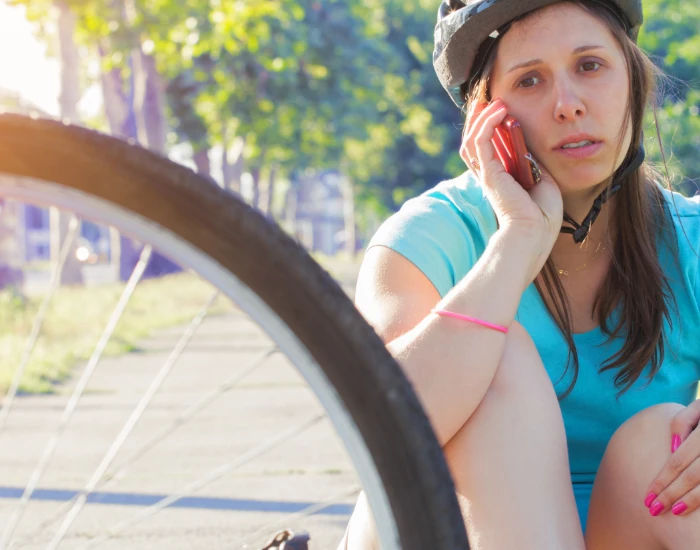
If you've been involved in an accident and believe you were partly to blame, you may still be able to claim compensation.
This situation is referred to as 'contributory negligence', and it doesn’t necessarily disqualify you from receiving compensation. However, it can affect how much you are awarded.
What is contributory negligence?
Contributory negligence occurs when both the claimant (you) and the defendant (the other party) share some level of responsibility for the accident or injury.
In cycling accidents, contributory negligence might apply if your actions played a role in causing or worsening your injuries.
Common cycling accident examples include:
In such cases, the court will determine how much blame to assign to you, and this will reduce the compensation you can receive.
How will my compensation be calculated if I was partly to blame?
If contributory negligence applies, the solicitors or courts will assess the degree of responsibility shared between you and the defendant. Your compensation will then be adjusted accordingly.
For example, if the court determines that you were 25% responsible for an accident due to poor lighting on your bike at night, you would receive 75% of the total compensation you would have otherwise received if the defendant had been fully at fault. So, if your claim was worth £20,000, you would receive £15,000 after accounting for your share of the blame.
To find out what you can claim, our compensation calculator takes contributory negligence into account.
Can you help me make a claim if I was partly to blame?
Yes, even if you share some of the blame for your accident, you can still make a claim. The compensation you receive will simply be adjusted to reflect your level of responsibility.
With the right legal support and solid evidence, you can still pursue a claim and secure the compensation you deserve.
If you've been involved in a cycling accident, don’t hesitate to contact us. We can help assess your case and guide you through the process, ensuring that you receive the maximum compensation possible.
We can help you claim - even if you're partly to blame
Our team and our expert solicitor panel know that accidents aren’t always straightforward.
With over 10 years of experience, we understand that being partly responsible for an accident doesn’t automatically prevent you from making a successful no win, no fee claim. We’ll carefully assess your situation, explain how contributory negligence might affect your compensation, and build a case to reflect your circumstances.
We’re here to ensure you get the support and guidance you deserve, even in complex cases.

 Written by Chris Salmon on 28th June 2016
Written by Chris Salmon on 28th June 2016
